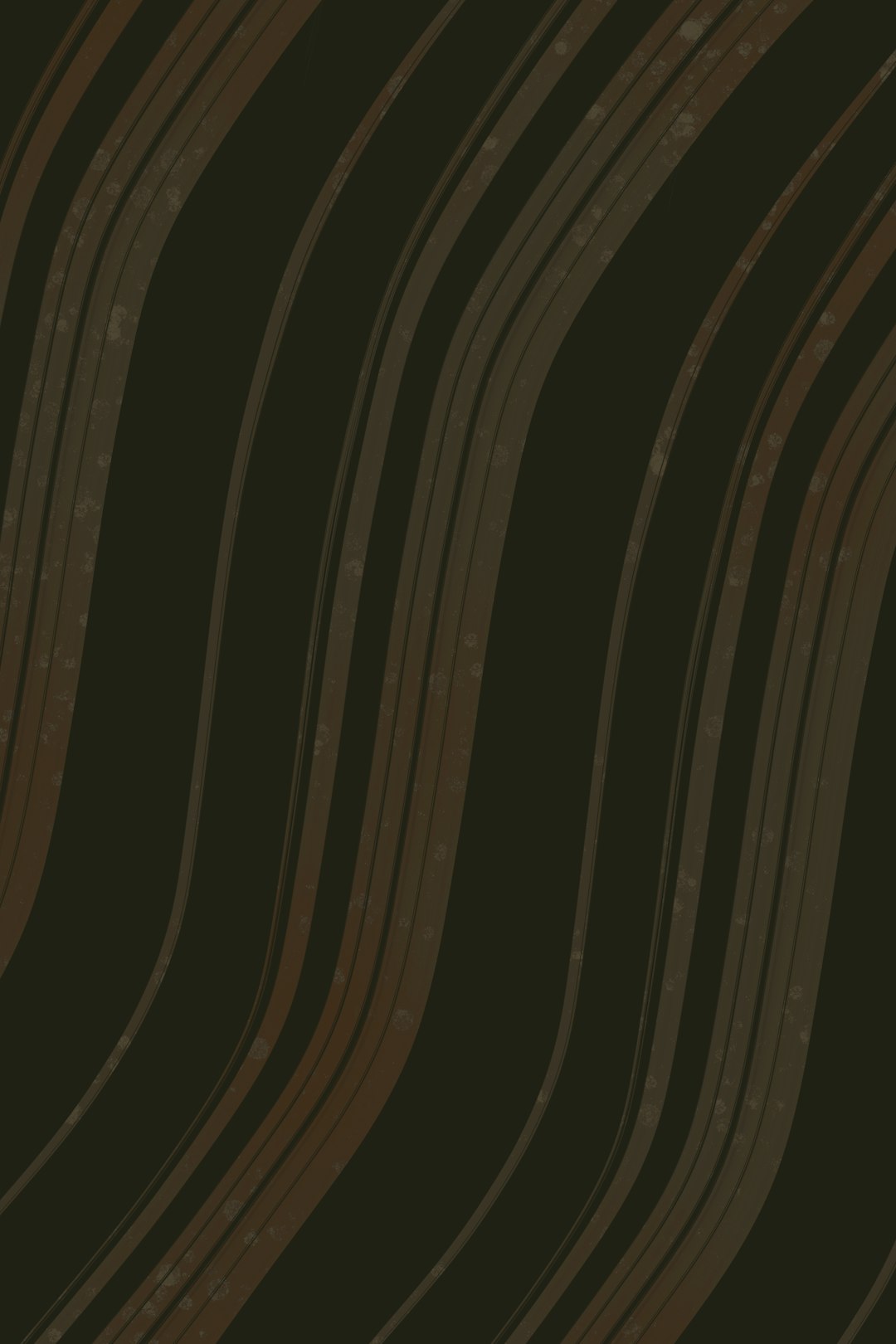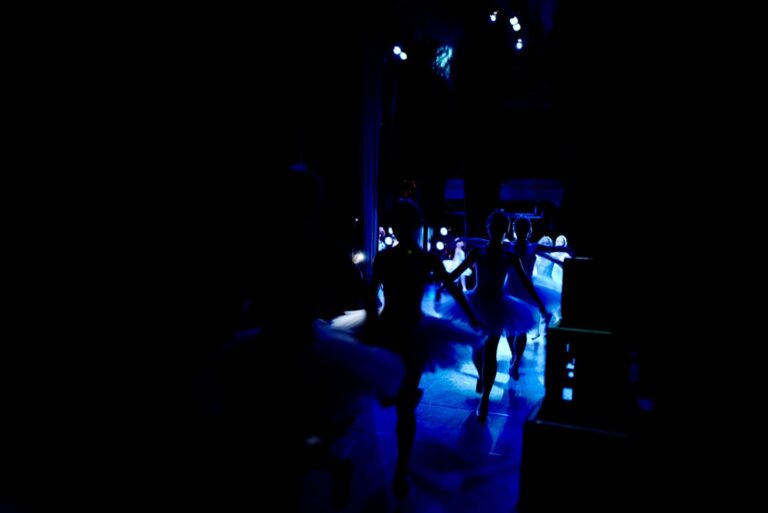Support our educational content for free when you purchase through links on our site. Learn more
What is Considered Synth-Pop? Discover 20 Must-Know Artists and More! [2024] 🎹

Are you ready to dive into the electrifying world of synth-pop? This genre, born from the fusion of catchy melodies and innovative electronic sounds, has captivated music lovers since the late 1970s. Imagine yourself at a neon-lit dance floor, where every beat pulses with the energy of synthesizers and drum machines. It’s no wonder that synth-pop has not only defined an era but continues to influence modern music today!
Did you know that the first music video ever aired on MTV was “Video Killed the Radio Star” by The Buggles? This iconic moment marked the beginning of a visual revolution for synth-pop artists, propelling them into the mainstream. In this article, we’ll explore what makes synth-pop tick, its rich history, and introduce you to 20 must-know artists who have shaped the genre. So, stay tuned as we unravel the fascinating layers of synth-pop and its enduring legacy!
Key Takeaways
- Definition of Synth-Pop: A genre characterized by the use of synthesizers, drum machines, and catchy melodies that emerged in the late 1970s.
- Cultural Impact: Synth-pop played a pivotal role in shaping the music landscape of the 1980s, heavily influenced by the rise of MTV.
- Key Characteristics: Expect lush electronic textures, melodic hooks, and often introspective lyrical themes.
- Notable Artists: Discover 20 essential synth-pop artists, including Depeche Mode, The Human League, and Duran Duran, who have left an indelible mark on the genre.
- Modern Influence: Synth-pop continues to inspire contemporary artists, blending with various genres and remaining relevant in today’s music scene.
Ready to explore the world of synth-pop? 👉 Shop synth gear like the Yamaha DX7 or Roland TR-808 to create your own electronic masterpieces! Check them out on Amazon or Yamaha Official Website! 🎶
Table of Contents
- Quick Tips and Facts about Synth-Pop 🎶
- What is Synth-Pop? Defining the Genre 🎤
- The Evolution of Synth-Pop: A Historical Overview 📜
- Key Characteristics of Synth-Pop Music 🎹
- Synth-Pop Artists You Need to Know: A Comprehensive List 🎧
- Criticism and Controversy in Synth-Pop: What’s the Buzz? 🐝
- The Influence and Legacy of Synth-Pop: Shaping Modern Music 🌍
- Synth-Pop in Popular Culture: Movies, TV, and Beyond 🎬
- The Future of Synth-Pop: Trends and Predictions 🔮
- Conclusion: Synth-Pop’s Enduring Appeal 💖
- Recommended Links for Further Exploration 🔗
- FAQ: Your Synth-Pop Questions Answered ❓
- Reference Links for Synth-Pop Enthusiasts 📚
Quick Tips and Facts about Synth-Pop 🎶
Welcome to the world of synth-pop, where the synthesizer reigns supreme! Here are some quick tips and facts to get you started:
-
Definition: Synth-pop is a genre of music that prominently features synthesizers, often accompanied by drum machines and sequencers. It emerged in the late 1970s and took the world by storm in the 1980s. Learn more about its origins.
-
Key Instruments: Expect to hear the lush sounds of the Prophet-5, Roland Jupiter, and Yamaha DX7, alongside the pulsating beats of the Roland TR-808.
-
Cultural Milestones: MTV’s launch helped catapult synth-pop to fame, with “Video Killed the Radio Star” by The Buggles being the first music video aired. Discover more about this iconic moment.
-
Notable Artists: Think of legends like Depeche Mode, The Human League, and Duran Duran. Their catchy tunes and distinctive styles define the genre.
-
Criticism: Some critics have dismissed synth-pop as “soulless” or “artificial,” but its influence on modern music is undeniable. Explore the debates.
-
Legacy: Synth-pop paved the way for genres like house music and techno, and its sounds continue to inspire artists today.
Now that you have a taste of synth-pop, let’s dive deeper into its vibrant world!
What is Synth-Pop? Defining the Genre 🎤
Synth-pop is a genre that thrives on electronic sounds and catchy melodies. It emerged during a time when technology was reshaping the music landscape, offering new possibilities for sound creation. But what exactly makes a song synth-pop?
Key Elements
- Synthesizers: The heart and soul of synth-pop. These electronic instruments create the lush soundscapes that define the genre.
- Drum Machines and Sequencers: These tools provide the rhythmic backbone, often replacing traditional drumming with electronic beats.
- Vocal Styles: While the music is often electronic, the vocals can range from robotic to operatic, adding emotional depth.
Lyrical Themes
Synth-pop lyrics often explore themes of isolation, urban life, and romance, capturing the complexities of modern existence. The genre’s ability to blend emotional lyrics with electronic sounds creates a unique listening experience.
Want to explore synth-pop’s defining tracks? Check out our Iconic Synth Pop Songs.
The Evolution of Synth-Pop: A Historical Overview 📜
Synth-pop’s journey is a tale of innovation and transformation. It began in the late 1970s and quickly gained momentum throughout the 1980s, becoming a staple of the music scene.
Early Influences
- Krautrock and Electronic Pioneers: Bands like Kraftwerk laid the groundwork with their experimental sounds.
- Disco and Art Rock: These genres introduced electronic elements that would later be embraced by synth-pop artists.
The 1980s Boom
The 1980s saw synth-pop explode in popularity, with bands like Depeche Mode and Duran Duran leading the charge. MTV played a crucial role in this, bringing the genre’s stylish music videos to a global audience.
The 1990s and Beyond
While synth-pop’s mainstream presence waned in the 1990s, its influence persisted. The rise of indietronica and electroclash in the late 1990s and early 2000s sparked renewed interest.
For a nostalgic trip, explore our 80s Synth Pop collection.
Key Characteristics of Synth-Pop Music 🎹
Synth-pop is known for its distinctive sound and style. But what sets it apart from other genres?
Sound and Style
- Electronic Textures: Synth-pop is characterized by its use of electronic instruments, creating rich and layered soundscapes.
- Melodic Hooks: Catchy melodies are a hallmark of the genre, making songs memorable and danceable.
- Minimalism: Early synth-pop often featured minimalist arrangements, focusing on simple riffs and repetitive patterns.
Visual Aesthetics
Synth-pop artists often embraced a futuristic and flamboyant style, with fashion playing a significant role in their image. This visual aspect was integral to the genre’s appeal, especially in the MTV era.
Synth-Pop Artists You Need to Know: A Comprehensive List 🎧
The synth-pop landscape is vast, with numerous artists contributing to its rich tapestry. Here are some names you should know:
- Depeche Mode: Known for their dark, brooding sound and hits like “Enjoy the Silence.”
- The Human League: Pioneers of the genre with classics like “Don’t You Want Me.”
- Duran Duran: Their stylish music videos and catchy tunes made them icons of the 80s.
- Eurythmics: With hits like “Sweet Dreams (Are Made of This),” they defined synth-pop’s mainstream appeal.
- Pet Shop Boys: Masters of blending electronic sounds with clever lyrics.
Want more? Dive into our List of Synth-Pop Artists.
Criticism and Controversy in Synth-Pop: What’s the Buzz? 🐝
Synth-pop has not been without its critics. Some have labeled it as “soulless” or “artificial,” questioning its emotional depth and musicianship.
Common Criticisms
- Lack of Authenticity: Critics argue that the heavy reliance on technology detracts from the music’s authenticity.
- Perceived Coldness: The electronic sounds can sometimes feel detached or unemotional, leading to mixed receptions.
Defending the Genre
Despite the criticisms, synth-pop has a passionate fanbase that appreciates its innovation and emotional range. As Andy McCluskey of OMD famously said, “It was all written by real human beings.”
The Influence and Legacy of Synth-Pop: Shaping Modern Music 🌍
Synth-pop’s impact on modern music is profound. Its embrace of electronic instruments paved the way for genres like house music, techno, and beyond.
Lasting Legacy
- Mainstream Acceptance: Synth-pop helped establish synthesizers as a legitimate instrument in pop and rock music.
- Influence on New Genres: The genre’s techniques and sounds have been adopted by countless artists across various genres, from hip hop to indie rock.
Modern Revival
In recent years, synth-pop has experienced a resurgence, with artists like Lady Gaga and The Weeknd drawing inspiration from its iconic sounds.
For a deeper dive into synth-pop’s enduring influence, check out our article on Who Sang “Funkytown” in the ’80s? Discover 12 Fascinating Facts!.
Synth-Pop in Popular Culture: Movies, TV, and Beyond 🎬
Synth-pop’s catchy tunes and distinctive sound have made it a popular choice for soundtracks in movies, TV shows, and commercials.
On the Big Screen
Films like “Drive” and “Stranger Things” have embraced synth-pop’s nostalgic appeal, using it to enhance their storytelling and atmosphere.
Television and Advertising
From TV shows to commercials, synth-pop’s upbeat and memorable melodies are often used to evoke a sense of nostalgia and energy.
Synth-pop’s presence in popular culture continues to grow, cementing its status as a timeless and influential genre.
The Future of Synth-Pop: Trends and Predictions 🔮
What does the future hold for synth-pop? As technology continues to evolve, so too does the genre.
Emerging Trends
- Hybrid Sounds: Modern artists are blending synth-pop with other genres, creating innovative and fresh sounds.
- Retro Revival: The nostalgia for 80s synth-pop remains strong, with many artists drawing inspiration from its classic elements.
Predictions
As long as there’s a desire for catchy melodies and electronic innovation, synth-pop will continue to thrive and evolve. Who knows what exciting developments lie ahead?
Stay tuned as synth-pop continues to shape the musical landscape, one synth at a time! 🎹
With this deep dive into synth-pop, you’re now equipped to explore the genre’s vibrant world. Whether you’re a seasoned fan or a curious newcomer, there’s always more to discover. Keep listening, keep exploring, and let the synths guide you on your musical journey! 🎶
Conclusion: Synth-Pop’s Enduring Appeal 💖

In conclusion, synth-pop is more than just a genre; it’s a vibrant cultural phenomenon that has shaped the music landscape for decades. With its catchy melodies, innovative use of synthesizers, and emotional lyrical themes, synth-pop continues to resonate with fans old and new.
Positives:
- Catchy Melodies: Synth-pop is known for its unforgettable hooks that make you want to dance.
- Innovative Soundscapes: The genre has pushed the boundaries of music production, introducing electronic elements that have influenced countless artists.
- Cultural Impact: From the 80s to today, synth-pop’s influence can be seen across various media, including film and television.
Negatives:
- Criticism of Authenticity: Some detractors argue that the genre lacks emotional depth and musicianship, viewing it as overly reliant on technology.
- Nostalgia Trap: While many celebrate the revival of synth-pop, others feel it can sometimes lean too heavily on nostalgia rather than innovation.
Despite these criticisms, our confident recommendation is to dive into the world of synth-pop! Whether you’re rediscovering classics or exploring new artists, there’s always something fresh and exciting to enjoy.
So, turn up the volume and let those synthesizers take you on a journey! 🎶
Recommended Links for Further Exploration 🔗
-
👉 Shop Synth Gear:
- Yamaha DX7: Amazon | Yamaha Official Website
- Roland TR-808: Amazon | Roland Official Website
- Prophet-5: Amazon | Sequential Official Website
-
Books on Synth-Pop:
FAQ: Your Synth-Pop Questions Answered ❓

What is an example of synth-pop?
A classic example of synth-pop is “Sweet Dreams (Are Made of This)” by Eurythmics. This song encapsulates the genre’s signature sound with its catchy melody, electronic instrumentation, and thought-provoking lyrics. Other notable examples include “Don’t You Want Me” by The Human League and “Take On Me” by a-ha.
Read more about “Erasure: The Synth-Pop Legends You Need To Know … 🎧”
What is synth-pop best described as?
Synth-pop is best described as a genre of music that combines pop melodies with electronic sounds, primarily created using synthesizers and drum machines. It emerged in the late 1970s and gained immense popularity in the 1980s, characterized by its polished production and catchy hooks.
Read more about “What is synth-pop best described as?”
What are the elements of synth-pop?
The key elements of synth-pop include:
- Synthesizers: The primary instrument used to create the genre’s distinct sounds.
- Drum Machines: Providing rhythmic support, often replacing traditional drums.
- Melodic Hooks: Catchy and memorable melodies that make the songs engaging.
- Lyrical Themes: Often exploring feelings of isolation, romance, and urban life, which resonate with listeners.
Read more about “Who Sang “Funkytown” in the ’80s? Discover 12 Fascinating Facts! … 🎶”
What is considered synth?
Synth refers to any electronic instrument that generates sound through the manipulation of electrical signals. In the context of synth-pop, it specifically relates to synthesizers that create the genre’s characteristic sounds. These instruments can mimic a wide range of sounds, from traditional orchestral instruments to entirely new sonic textures.
Read more about “What Was the First Synthwave Song? …”
How has synth-pop influenced modern music?
Synth-pop has had a profound influence on modern music, paving the way for genres like electronic dance music (EDM), house, and techno. Many contemporary artists, including Lady Gaga and The Weeknd, incorporate synth-pop elements into their music, showcasing the genre’s lasting legacy.
Read more about “What Happened to The Human League? 12 Surprising Facts You Need to Know … 🎤”
Why is synth-pop still popular today?
Synth-pop remains popular today due to its catchy melodies, nostalgic appeal, and the ongoing interest in electronic music. The genre’s ability to evolve and blend with other styles ensures that it continues to resonate with new generations of listeners.
Read more about “Are Annie Lennox and Dave Stewart Still Friends? The Surprising Truth Revealed … 🤔”
Reference Links for Verification 📚
- Wikipedia: Synth-pop
- Wikipedia: List of Synth-pop Artists
- Kraftwerk Official Site
- Depeche Mode Official Site
- The Human League Official Site
Explore these links to deepen your understanding of synth-pop and its rich history! 🎶




